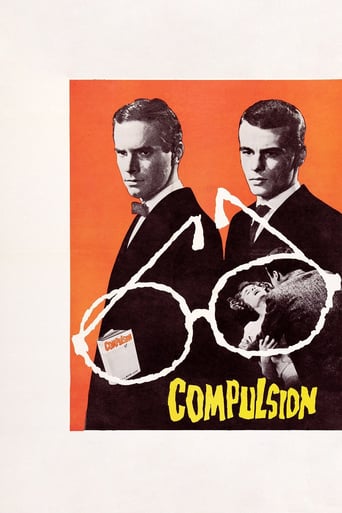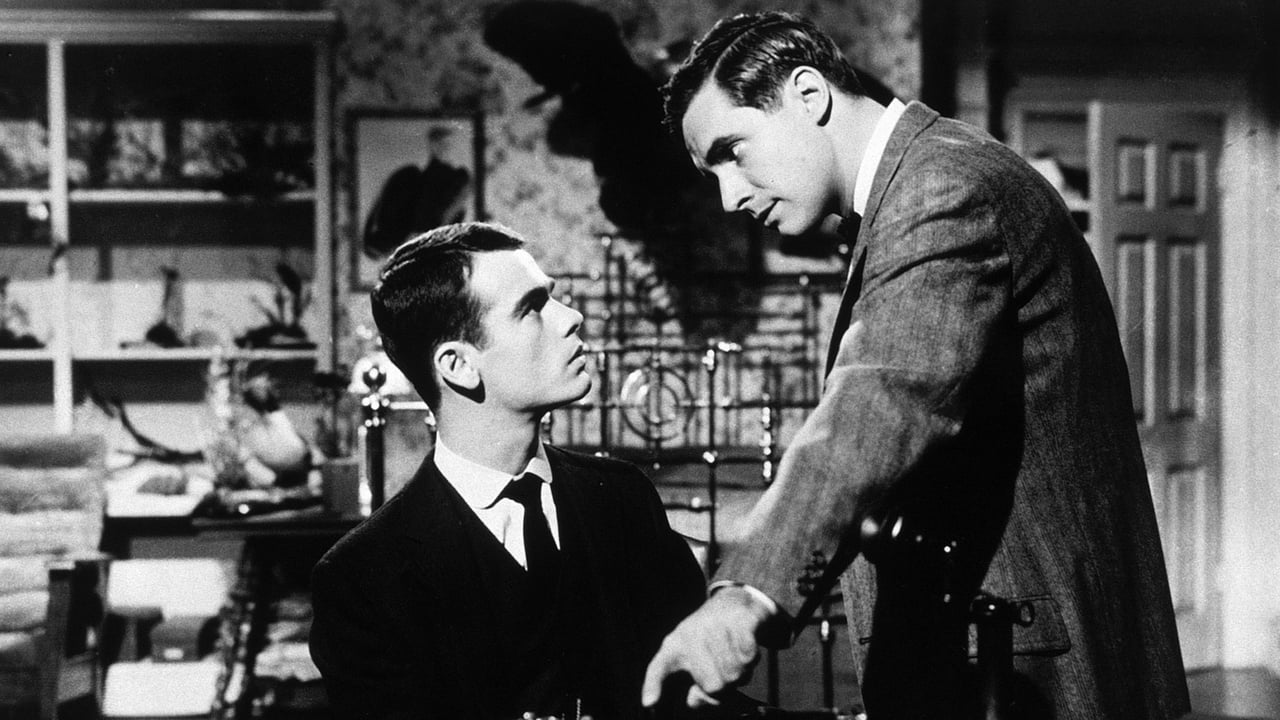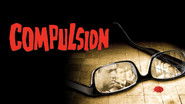garito-1
Watching this nearly 50 years after it was made, it is perhaps not surprising that the film is filled with stale ideas that have been used a million times since. The out-spoken, outlandish defence lawyer with a seemingly water- tight case against his clients. The culprits that you are made to love and hate at the same time - even down to the hot, stuffy court room. You have seen it all before and done better. As others has mentioned, Dean Stockwell turns in the best performance in the film (although that's not saying much) Welles plays the role that made him famous, but here he does so without much effort or, it seems, interest; just going through his tried and tested routine. All other characters inspire no real interest or sympathy from the audience. All in all, it misses the key drama points that would have made for a much sharper, compelling and gritty film even in the late 50s when it was made.
MisterWhiplash
It's best to look at Compulsion in two halves: the first half starts off with Dean Stockwell and Bradford Dillman just coming off of their crime and the former holding his stolen typewriter (this isn't shown at all, so maybe, for just half a second, one might wonder if they're the killers... until they move their mouths and look at one another). In short, they kidnapped and killed a little kid, and they spend the first half - as preppy college kids in 1924 Chicago - trying to trace their tracks and not look guilty as hell (the latter part they fail at, miserably). The other half is the court case when they're brought up on their charges and facing the hangman's noose. But enter in Jonathan Wilk (Orson Welles), inspired by Clarence Darrow - as the case is the Leopold-Loeb inspired one - who is here as the Best Trial Lawyer In The Country (in caps) there to not say they don't deserve to be punished, but that they don't deserve to die so quickly.Many will remember this for the final courtroom monologue that Welles delivers. And no wonder, as it's reported often as one of the (if not THE) longest in cinematic history. What marks this as being so extraordinary and gripping is the basic humanity of his delivery. We get some of the dry wit that we may see in other Welles performances (i.e. Third Man), but here it's different as his character Wilk gives his impassioned plea.It's as if he can barely argue anymore, and he's just trying to talk to the people of the court - the judge especially, as due to reasons there's no jury for this case - and why Capital punishment shouldn't occur here, despite the heinous act. Watch how Welles goes about the courtroom, exerting his authority, but his delivery is carefully measured, almost saddened by the horrors of all humanity. It's the most humble we may have ever seen Welles on screen, and it's all the greater for it; you want to rewind it to see every nuance, every moment where that usual blustering, almost over-the-top (albeit towering and great) Welles is replaced by something... compassionate.It is such a great set piece, and the trial before it is sensational too, that you almost forget that the first half is just alright. Both Stockwell and Dillman are fine, with Stockwell kind of anticipating Norman Bates in a strange way (I have to wonder if Hitchcock watched this, not just as it is a retelling of the case of Rope, but for the aspect of a skinny, pathological guy into birds). These scenes are directed with competence, skill, even some sort of artistry with black and white scope, but it feels like we're waiting for the main show to happen. Perhaps Dillman is just so pushy, or maybe spot on, with his sociopathic killer that it gets almost tiring after a while.So, in other words: 1st half, 3 stars. Second half, 4 stars. Thus, this rating (or put into 10/10)
diomavro
I was mostly going through a youtube movie streak when I ran into this gem. The movie seems to be broken up into two parts, the first is an exploration of the motives and guilt of the two main characters who have committed an atrocity. Oddly enough for the horrific characters that they are, I found that I was not outright rooting for their fall which is quite an achievement in my eyes. Regardless, this part of the film is interesting in terms of character motifs but perhaps a little too linear in its uncovering.The second part of the film is when their lawyer, Orson Welles comes in to defend them. At first it seems very odd and bureaucratic as a procedure but ultimately pays off with a quite raw and dramatic court room scene at the end of the film which is probably the most powerful part of the movie.Regardless of how good the movie is, I would recommend this film just because of its structure, even though there is less of an emotional impact this way, I feel like it achieves something else. Instead of focusing on pulling us to identify or feel their sorrow we are invited to think critically about the paradoxical nature of the death penalty.
Michael_Elliott
Compulsion (1959) *** (out of 4) Law students Judd Steiner (Dean Stockwell) and Arthur Straus (Bradford Dillman) kill a young boy just to see what murder is like. The two think they're smart enough to get away with it but the local D.A. (E.G. Marshall) finally busts them for it and plans on seeking the death penalty but a successful and popular lawyer (Orson Welles) decides to take the case to try and save their lives. COMPULSION is loosely based on the Leopold-Loeb murder case, which was also previous told by Alfred Hitchcock in his underrated ROPE. I personally think the Hitchcock film is much better but this one here is still very much worth watching thanks in large part to the terrific performances. I think the film's story is mildly entertaining but it never fully grabbed me. I think part of the reason it didn't is that the opening hour just isn't strong enough to fully make us hate these two characters. I know that might sound weird to say but I think the film needed us to have some sort of stronger feelings about the two boys. I also think it would have been better had the film explained a bit better why these two decided to murder like they did. With that said, the film really picks up speed during the final forty-minutes and especially once Welles enters the picture. His entrance is certainly very memorable but the actor also turns in one of his greatest performances because of how cool and laid back he is. The final monologue has become somewhat legendary and for good reason. I've seen enough courtroom dramas to know how most people would have placed this but the way Welles does it is just a complete joy to watch. Both Stockwell and Dillman are also extremely good in their roles. There's not a single second that goes by that you don't believe them in the parts and best of all is how they manage to get that coldness of their characters across. Marshall also deserves a lot of credit for his strong performance. The film's B&W cinematography is also extremely good and director Richard Fleischer handles the material with no problem.



 AD
AD




